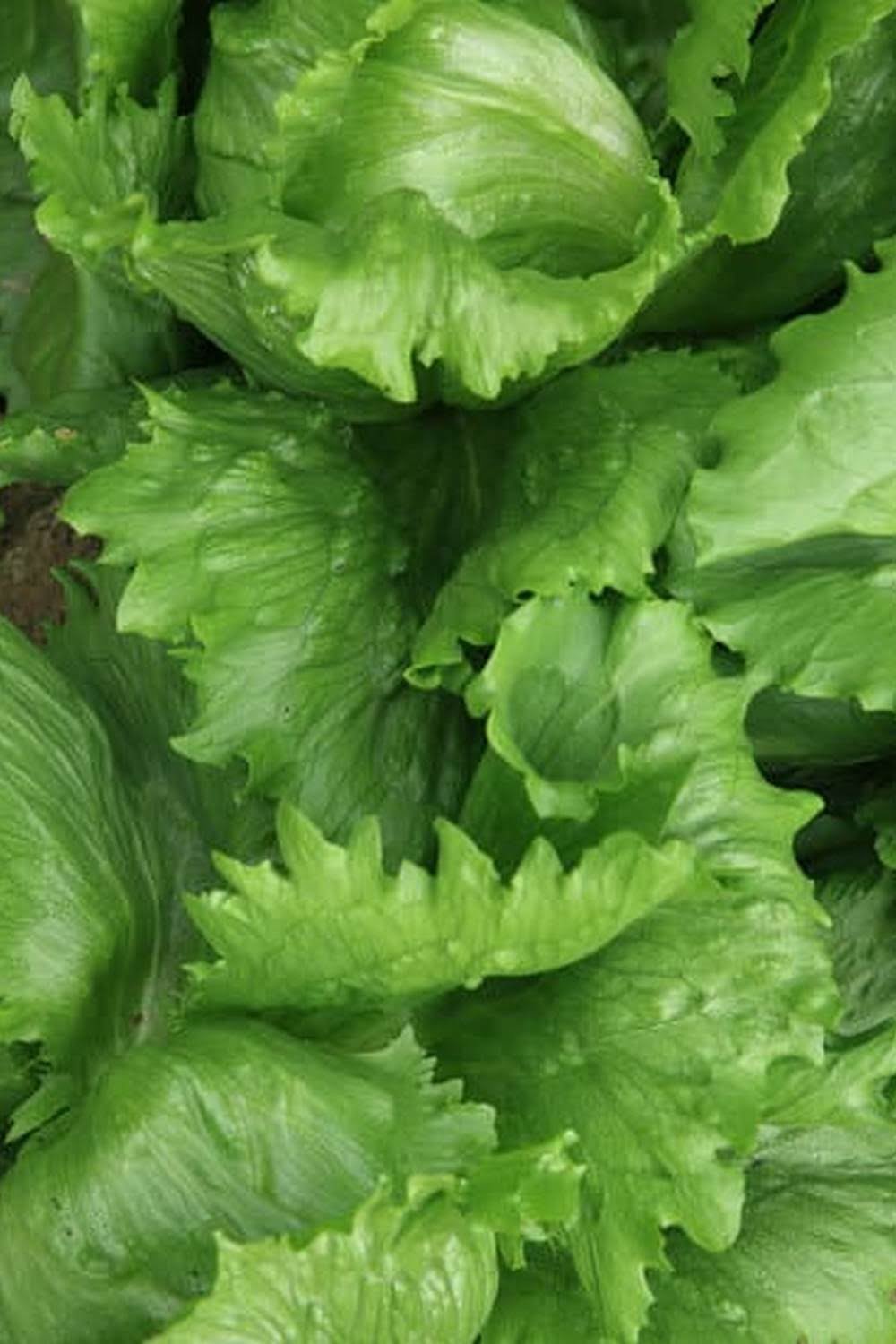Are you interested in starting a backyard vegetable garden and want to learn how to successfully grow zucchini? Fertilizing and watering zucchini are key components to ensuring a thriving garden.
Zucchini is a popular and versatile vegetable that can be easily grown in your backyard, providing numerous benefits for both your health and your meals. In this article, we will explore the importance of fertilizing and watering zucchini plants in backyard vegetable gardening, as well as provide best practices for growing a successful zucchini garden.
Backyard vegetable gardening has become increasingly popular among individuals looking to grow their own fresh produce. Not only does it provide the satisfaction of harvesting your own crops, but it also promotes sustainability and reduces reliance on store-bought vegetables. Among the various vegetables that can be grown in a backyard garden, zucchini stands out as an excellent choice due to its ease of cultivation and prolific harvests.
To ensure the success of your zucchini plants, it is crucial to understand their specific needs, including proper fertilization and watering techniques. By providing the right nutrients and maintaining adequate moisture levels, you can promote healthy growth and bountiful yields from your zucchini plants.
In the following sections, we will delve into the importance of fertilizing zucchini, different methods for doing so effectively, the role of watering in zucchini gardening, best practices for watering zucchini plants, as well as troubleshooting common issues related to fertilizing and watering. Whether you’re new to gardening or looking to improve your existing skills, this article will provide valuable insights for cultivating a thriving zucchini garden in your backyard.
Benefits of Growing Zucchini in Your Backyard
Growing zucchini in your backyard can be a rewarding and beneficial experience. Not only does it provide you with a fresh and healthy vegetable to enjoy, but it also offers a sense of accomplishment and self-sufficiency. There are numerous benefits to growing zucchini in your backyard, making it an ideal addition to any vegetable garden.
1. Fresh and Nutrient-Rich Produce: By growing zucchini in your backyard, you have direct access to fresh and nutrient-rich produce. Zucchinis are a good source of vitamins A and C, as well as potassium and fiber. Having these nutritious vegetables readily available at home encourages healthier eating habits for you and your family.
2. Cost Savings: Purchasing zucchini from the grocery store can add up over time, especially if you use this versatile vegetable frequently in your cooking. By growing zucchini in your backyard, you can significantly reduce your grocery costs while ensuring that you have a steady supply of fresh produce.
3. Sustainability: Growing your own vegetables contributes to sustainability efforts by reducing the need for transportation and packaging associated with store-bought produce. Additionally, backyard gardening allows you to control the use of pesticides and chemicals, promoting environmentally-friendly practices.
Whether you’re a novice gardener or an experienced enthusiast, adding zucchinis to your backyard garden can offer numerous benefits that extend beyond just a bountiful harvest.
Understanding the Needs of Zucchini Plants
Zucchini, like many other plants, have specific needs that must be met in order for them to thrive in a backyard vegetable garden. Understanding these needs is crucial for ensuring a successful harvest of these popular summer squash. One of the key requirements for zucchini plants is proper fertilization and watering.
Fertilizing and watering zucchini in your backyard vegetable garden is essential for the healthy growth and production of these plants. Here are some important points to consider when it comes to meeting the needs of zucchini:
- Fertilizing: Zucchini plants require nutrient-rich soil in order to produce an abundant harvest. Applying the right type and amount of fertilizer at the correct times can make a significant difference in the growth and yield of your zucchinis. Whether you choose organic or synthetic fertilizers, it’s important to ensure that your plants are getting the necessary nutrients they need to thrive.
- Watering: Adequate water is essential for zucchini plants, especially during their active growing periods. Consistent and deep watering is key to preventing issues such as blossom end rot and poor fruit development. It’s important to water at the base of the plant to avoid getting the foliage wet, which can lead to disease issues.
By understanding how to properly fertilize and water your zucchini plants, you can set yourself up for a successful harvest of this popular summer squash in your backyard vegetable garden. In the following sections, we will explore different methods of fertilizing zucchini as well as best practices for watering these plants to ensure optimal growth and productivity.
Importance of Fertilizing Zucchini
Fertilizing plays a crucial role in the growth and development of zucchini plants in your backyard vegetable garden. Without proper nutrients, zucchini plants may struggle to produce healthy and abundant fruit. Understanding the importance of fertilizing zucchini is essential for any gardener looking to achieve a successful harvest.
Key Nutrients for Zucchini Plants
Zucchini plants require a combination of essential nutrients to thrive, including nitrogen, phosphorus, and potassium. Nitrogen is necessary for healthy leaf and stem growth, while phosphorus supports root development and overall plant health. Potassium helps with fruit production and disease resistance. Additionally, zucchini plants benefit from micronutrients such as calcium, magnesium, and sulfur.
Enhancing Soil Fertility
Adding organic matter such as compost or well-rotted manure to the soil before planting zucchini can provide a natural source of nutrients for the plants. Organic fertilizers containing ingredients like fish emulsion or seaweed extract can also enrich the soil and provide gradual nourishment to the zucchini plants throughout the growing season. Regularly testing the soil’s pH levels can help ensure that the nutrients are readily available to the plants.
Fertilizing Schedule
It’s important to follow a consistent fertilizing schedule to meet the needs of zucchini plants at different stages of growth. Begin by applying a balanced fertilizer when preparing the soil for planting. As the plants start producing flowers and small fruits, switch to a fertilizer higher in phosphorus to support fruit development. Avoid over-fertilizing, as this can lead to excessive foliage at the expense of fruit production.
By understanding the importance of fertilizing zucchini and providing your plants with proper nutrition, you can enjoy a bountiful harvest of delicious zucchinis from your backyard vegetable garden.
Different Methods of Fertilizing Zucchini
When it comes to fertilizing zucchini plants in your backyard vegetable garden, there are various methods to consider in order to ensure their healthy growth and a bountiful harvest. One common method is using organic compost, which provides essential nutrients to the soil and creates a thriving environment for zucchini plants. This natural fertilizer can be made from kitchen scraps, yard waste, and other organic matter, making it environmentally friendly and cost-effective.
Another effective method of fertilizing zucchini is using commercial organic fertilizer specifically designed for vegetable gardens. These products are formulated with the right balance of nutrients that zucchini plants need to thrive, including nitrogen, phosphorus, and potassium. When applying commercial organic fertilizer, be sure to follow the manufacturer’s instructions for proper dosage and application frequency.
Furthermore, some gardeners may opt for liquid fertilizers when growing zucchini in their backyard. Liquid fertilizers can be easily absorbed by the plant roots and provide an immediate nutrient boost.
However, it is important to use these fertilizers sparingly to prevent over-fertilization, which can lead to burned plants or nutrient imbalances. By choosing the right method of fertilizing zucchini based on your garden’s specific needs and your preferences as a gardener, you can ensure that your zucchini plants receive the necessary nutrients for optimal growth and abundant fruit production.
The Role of Watering in Zucchini Gardening
When it comes to watering zucchinis, it’s important to keep the soil consistently moist but not waterlogged. A good rule of thumb is to provide about 1-2 inches of water per week, either through rainfall or manual watering. However, this can vary depending on your specific climate and soil conditions. It’s essential to monitor the moisture level of the soil regularly to ensure that it doesn’t dry out completely between each watering session.
In addition to frequency, the timing of watering is also important for zucchini plants. The best time to water your zucchinis is in the morning, allowing any excess moisture on the leaves and stems to evaporate during the day. This can help prevent common fungal diseases that thrive in damp conditions, such as powdery mildew. By being mindful of both the frequency and timing of watering, you can set your zucchini plants up for success and enjoy a bountiful harvest.
| Watering Zucchini Plants | Best Practices |
|---|---|
| Keep soil consistently moist but not waterlogged | Monitor soil moisture regularly |
| Provide 1-2 inches of water per week | Water in the morning for optimal absorption |
Best Practices for Watering Zucchini Plants
As a crucial component of backyard vegetable gardening, watering zucchini plants is essential for their growth and production. Zucchinis require consistent moisture to thrive, making proper watering techniques imperative for a successful harvest. In this section, we will discuss the best practices for watering zucchini plants to ensure optimum health and productivity.
When it comes to watering zucchini plants, the key is to maintain even soil moisture throughout the growing season. Zucchinis are particularly sensitive to fluctuations in soil moisture, so it’s important to water them regularly. A good rule of thumb is to provide about 1-2 inches of water per week, either through rainfall or irrigation. However, it’s crucial to avoid overwatering, as this can lead to root rot and other issues.
One effective method for watering zucchini plants is drip irrigation, which delivers water directly to the base of the plants. This helps minimize water waste and reduces the risk of overhead watering-related diseases. Additionally, applying mulch around zucchini plants can help retain soil moisture and reduce water evaporation. Mulch also aids in suppressing weeds that may compete with zucchini for water and nutrients.
It’s important to monitor the soil moisture levels regularly by checking the top few inches of soil. If the soil feels dry to the touch, it’s time to water your zucchini plants.
During hot weather or times of drought, you may need to increase the frequency of watering to ensure that your zucchinis are getting adequate moisture. By following these best practices for watering zucchini plants, you can promote healthy growth and bountiful harvests in your backyard vegetable garden.
| Watering Zucchini Plants | Best Practices |
|---|---|
| Maintain even soil moisture | Regularly check soil moisture levels |
| Use drip irrigation or soaker hoses | Avoid overwatering |
| Apply mulch around plants | Monitor weather conditions and adjust watering frequency as needed |
Troubleshooting Common Issues With Fertilizing and Watering Zucchini
When it comes to fertilizing and watering zucchini plants in your backyard vegetable garden, there can be some common issues that arise. Understanding these issues and how to troubleshoot them is crucial for the success of your zucchini plants.
Over-Fertilization
One common issue when fertilizing zucchini plants is over-fertilization. Using too much fertilizer can lead to an excess of nitrogen, which can result in lush, green foliage but few fruits. To troubleshoot this issue, it’s important to follow the recommended guidelines for fertilizing zucchini plants. Additionally, you may need to flush the soil with water to help remove any excess fertilizer and allow the plant to recover.
Under-Watering
Another common problem in growing zucchinis is under-watering. Zucchini plants require consistent and adequate moisture to thrive, and dry conditions can lead to stunted growth and poor fruit production. To troubleshoot this issue, it’s essential to monitor the moisture levels of the soil regularly and adjust your watering schedule as needed. Mulching around the base of the plants can also help retain soil moisture.
Salt Buildup
Frequent fertilizing without proper watering can lead to salt buildup in the soil, which can cause damage to zucchini plants. If you notice white crust on the soil surface or leaf edges turning brown, it could be a sign of salt buildup. To troubleshoot this issue, you may need to leach the soil by thoroughly watering it or using a root feeder to flush out excessive salts from the root zone.
By understanding these common issues with fertilizing and watering zucchini plants and knowing how to troubleshoot them, you’ll be better equipped to grow a successful zucchini garden in your backyard vegetable garden.
Conclusion
In conclusion, growing zucchini in your backyard vegetable garden can be a rewarding and fruitful experience. Understanding the needs of zucchini plants, including fertilizing and watering, is essential for a successful harvest. By providing the right nutrients and proper watering techniques, you can ensure healthy, thriving zucchini plants that will yield an abundance of delicious vegetables for you and your family to enjoy.
Fertilizing zucchini is crucial for promoting healthy growth and high yields. Whether using organic or synthetic fertilizers, it’s important to feed the plants with the necessary nutrients at the right time. Additionally, incorporating compost into the soil can provide a natural source of nutrients for the zucchini plants. By following best practices for fertilizing, you can support the health and productivity of your zucchini plants.
Watering is equally vital in the care of zucchini plants. Consistent moisture is essential for preventing issues such as blossom end rot and promoting healthy fruit production. It’s important to water deeply but infrequently to encourage strong root development and prevent water-related diseases.
By maintaining proper watering practices throughout the growing season, you can help ensure a bountiful harvest from your zucchini garden. Overall, by understanding and addressing the needs of your zucchini plants through fertilizing and watering, you can cultivate a successful backyard vegetable garden full of delicious produce.
Frequently Asked Questions
What Is the Best Fertilizer for Zucchini Plants?
The best fertilizer for zucchini plants is one with a balanced NPK ratio, such as 10-10-10 or 5-10-10. Organic options like compost or well-rotted manure can also work well.
How Often Should I Fertilize Zucchini Plants?
Zucchini plants should be fertilized every 3-4 weeks during the growing season. It’s important not to over-fertilize, as this can lead to excessive foliage growth at the expense of fruit production.
Should Zucchini Plants Be Watered Every Day?
Zucchini plants do not need to be watered every day, but they do require consistent moisture. It’s best to water deeply once or twice a week, allowing the soil to dry slightly between watering to prevent root rot. A layer of mulch can help retain soil moisture.

If you’re looking to get into vegetable gardening, or are just looking for some tips on how to make your current garden better, then you’ve come to the right place! My name is Ethel and I have been gardening for years. In this blog, I’m going to share with you some of my best tips on how to create a successful vegetable garden.





